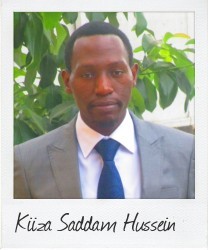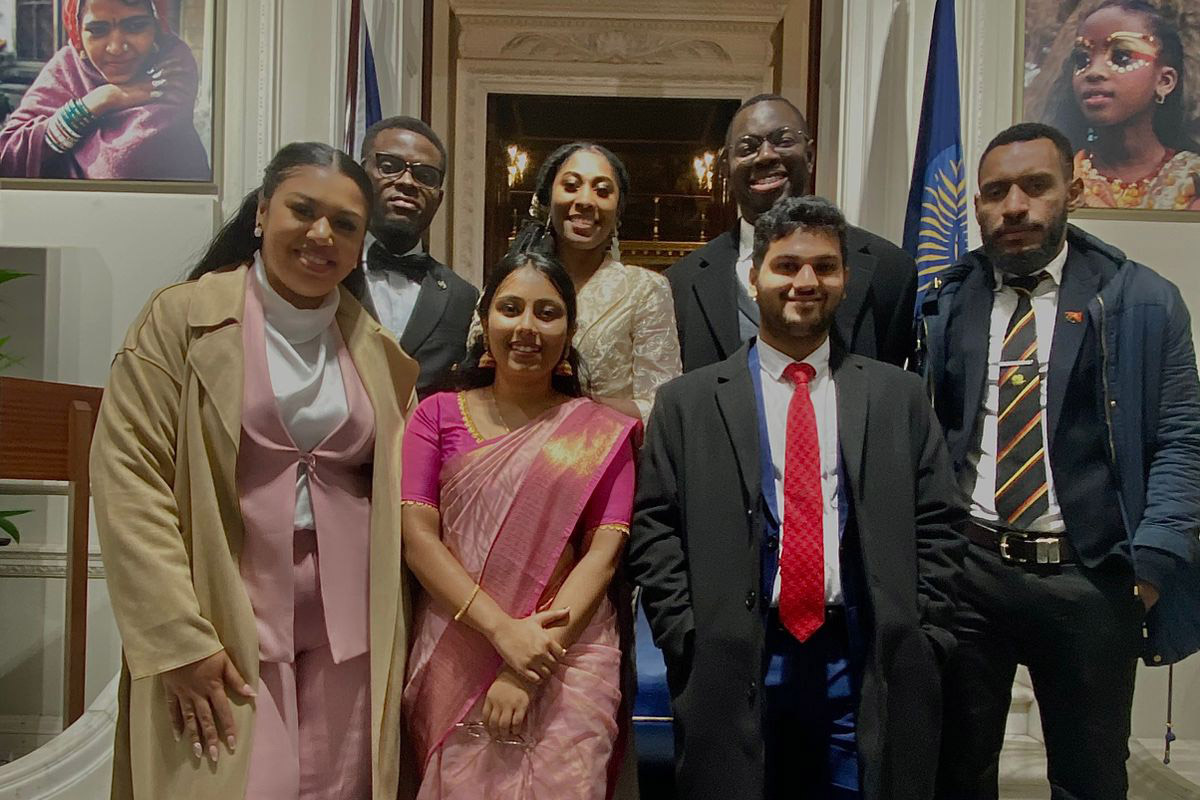“Uganda in the spotlight at 9th Commonwealth Youth Ministers’ Meeting”
August 4 A key legacy of the 9th Commonwealth Youth Ministers’ Meeting will be how the host nation of Uganda reacts to growing calls to action to combat climate change, writes Kiiza Saddam Hussein, 26, a Correspondent who lives in Uganda and Rwanda.
A key legacy of the 9th Commonwealth Youth Ministers’ Meeting will be how the host nation of Uganda reacts to growing calls to action to combat climate change, writes Kiiza Saddam Hussein, 26, a Correspondent who lives in Uganda and Rwanda.
For the last week, Uganda has been in the spotlight, as it has hosted the 9th Commonwealth Youth Ministers’ meeting in Kampala at Munyonyo commonwealth resort.
Convened every four years, this meeting has brought international recognition for Uganda not just as host, but also for supporting what the United Nations Refugee Agency estimates to be over 2,000,000 refugees from South Sudan, Somalia, Burundi and DRC. Uganda’s open door policy to refugees has resonated greatly with this year’s theme across the Commonwealth of building a more peaceful union.
The theme at this year’s Youth Ministers’ meeting was “Resourcing and Financing Youth Development: Empowering Young People”. This has been extremely timely because Uganda, and several other Commonwealth countries, are at a critical stage where they are faced with increased youth unemployment rates. According to the Uganda Bureau of statistics, youth unemployment ranges from 68 to 75 per cent. That’s even after the government has tried out different youth initiatives. For example, the Youth Fund has still failed to offset unemployment as a result of its mismanagement.
The long-term impact of this meeting will be to identify how policy models can translate into creating real jobs for the hungry youth in the Commonwealth countries. Many Ugandans who I speak to blame the education sector that creates jobs seekers rather than job creators. They believe if Ugandans were given proper education, borrowing a leaf from other developing nations like China, where children are taught according to their interest and potential of becoming job creators, it would create a big difference and drastically reduce the levels of unemployment within the next 10 years.
Watch Kiiza’s video:
Many Ugandans , however, also believe corruption has played a key role in the high youth unemployment rates. Like Kenya, Uganda suffers from corruption, a disease that has penetrated almost every sector of the government. Despite laws that penalize any form of corruption and embezzlement, the political will to prosecute the ‘big fish’ profiteers is still in doubt.
The Commonwealth meeting has also discussed three key agreements: the 2030 Agenda for Sustainable Development (the Sustainable Development Goals), the Paris Agreement on Climate Action, and UN Security Council Resolution 2250 on Youth, Peace and Security. Each of these agreements are incredibly important to Uganda.
At this moment, Uganda is dealing with many suspected impacts of climate change: landslides, floods, and droughts, which have left many poor Ugandans either homeless, or hungry, or both. When a recent drought hit a district in western Uganda called Isingiro, it left many people wondering if the government had in place a clear strategy on how to combat climate change.
Uganda is expected to receive technological and financial support that shall be used in preventing and scaling down climate change negative impacts because it is one of the lowest emitters of greenhouses gases. To date, however, the government has shown only a tepid commitment to fighting climate change through legal reforms and other policies.
If climate change action is fast-tracked we shall see many green jobs being created into the economy which will also add revenue for the government to create clean jobs for the nation’s youth.
Twitter: @saddamhusseink
photo credit: Kiiza Saddam Hussein
…………………………………………………………………………………………………………………
About me: I am a lawyer by profession, with an established career in human rights and climate change activism. Ultimately I believe in the values of democracy and rule of law.
I serve as programs manager at Uganda Youth Society for Human Rights Organization. Throughout my life I have advocated for girl child rights, youth rights, women’s rights and climate action. I aspire to become a leading figure on the international level and to lead others in addressing global challenges.
…………………………………………………………………………………………………………………
Opinions expressed in this article are those of the author and do not necessarily represent the views of the Commonwealth Youth Programme. Articles are published in a spirit of dialogue, respect and understanding. If you disagree, why not submit a response?
To learn more about becoming a Commonwealth Correspondent please visit: http://www.yourcommonwealth.org/submit-articles/
…………………………………………………………………………………………………………………






